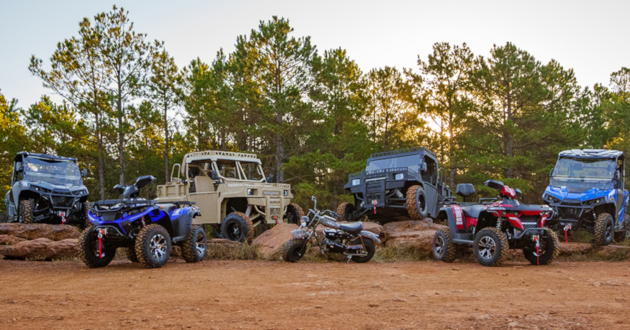Oct. 13, 2008 – The positives and negatives of a ‘healthy cleansing process’
WICHITA, Kan. — The last year could have been one of the most challenging in Big Dog Motorcycles’ 15 years of existence.
Wholesale sales slumped, in part due to tightened credit standards at the retail level. Dealer losses were higher than usual.
On the other hand, a major competitor, at least for the short term, fell to the wayside and the company’s first entry into the lower price-point territory faired well.
Company founder and CEO Sheldon Coleman addressed each of these topics during a recent discussion with Powersports Business. Coleman’s answers have been edited for clarity and brevity.
Powersports Business: Last year Big Dog Motorcycles built its first motorcycle that was geared toward a lower price point. What did you learn from that experience?
Sheldon Coleman: We have found the market does have price sensitivity. A 10 percent drop in price (for the 2008 Mutt) dramatically increased the retail traffic. Twenty-five thousand is a tipping point of being able to get into a custom bike vs. somebody who is really committed to that type of product space. If they’re really into it and experienced in the high-end market and they can afford it, they want the best. They want the coolest features. They want the latest stuff and it’s not as price-sensitive. It’s actually the other way. If it’s too low a price, they think it’s not cool enough. The lower end of our line is more price sensitive. More than we thought it would be.
PSB: Does the at least short-term loss of American IronHorse as a major V-twin manufacturer hurt the custom segment, in terms of the loss of a major marketing presence?
Coleman: That’s such a mixed bag. It’s really hard for me to pick that apart. On the one hand, there’s more place for our brand to flourish and for people to say, “Through thick and thin, these guys are the real deal.” And that’s a good position to be in. On the other hand, it is exciting in an industry when there are players and things are cooking and everybody is looking for options. I just think in the natural free enterprise ebb and flow, times of trouble do break down the weaker players, whether it’s dealers or manufacturers. That’s just a healthy cleansing process for every industry. It’s tough, but everybody goes through it, and then the strong are the survivors. And they get better and better able to serve their customers. There are pluses and minuses to it all. Right now Indian is working on getting back into it. So I welcome that.
You know, we’re pretty competitive. So I wasn’t broken up about IronHorse, except it hurts all the dealers that we share in common. But from a competitive position, I would like to pick up their dealers and market share and bring some fresh energy in with them. Whoever we compete against, I hope — and for sure in Indian’s case they will — they really stick to good compliance, customer service and give a really good customer experience. Because that clearly does help all of us. And the experience has been pretty sketchy because of all of these smaller companies getting into (financial) trouble.
PSB: What’s been tougher: The tightened retail financing standards that have impacted the custom V-twin segment or our perception that you have had notable dealer turnover?
Coleman: Retail financing is much bigger. We have had dealer attrition. In a normal year, about 10 percent of the dealers decide they don’t want to do anything more or get in financial trouble. That’s pretty common. I think we were closer to 20 dealers this year. But we found 10 new ones, usually in the same market where someone dropped out.
The biggest deal for everybody is retail financing being tougher to find. It really does hurt everybody’s sales. I don’t want to get into crazy financing, but the pendulum has gone too far. You can talk to any bank and even if they didn’t make any bad loans, they’re all too conservative. And they all admit it. We’ve gone too far. We’re cutting the credit for good customers, whether it’s credit card, mortgage rates or things like retail financing for motorcycles. They all admit they’ve gone too far, but they’re all in this psychological panic, even the conservative banks. That’s the group that will come back and re-engage. It’s too lucrative for them to stay on the sidelines.
— Neil Pascale








